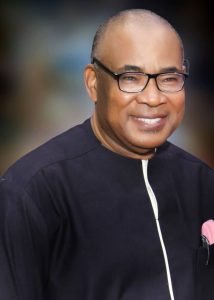
Whilst self-reliance has its advantages, it also has its dangers especially when it comes to our relationship with God. Man was not created to live completely independent of God; he was created to live within boundaries. When Adam and Eve were created their freedom was not without boundaries; they were given rules to abide by. They were not free to act and live anyhow. They were created to be dependent on God. They were to trust God for all things. But the fall of man changed all that.
With the fall came man’s dependence on himself. He began to trust in his wisdom, his abilities and his wealth. Man’s reliance on himself pitched him far away from God. In this age of humanism, we emphasize our skills, competences, knowledge, abilities, our networks and alliances. All these, good as they may be, they fail us. Nothing can take the place of God in our lives. Those who trust in men end up in disappointment and failure.
Proverbs 3:5-8 directs, “Trust in the LORD with all your heart, and do not lean on your own understanding. In all your ways acknowledge him, and he will make straight your paths. Be not wise in your own eyes; fear the LORD, and turn away from evil. It will be healing to your flesh and refreshment to your bones.”
Wisdom should be treasured any day and time. Even the scriptures exalts the pursuit of wisdom. But there is a caveat. Wisdom that is not God centred could be a draw back. It could be worldly, proud and lacking in humility.
Psalm 146:3 warns, “Put not your trust in princes, in a son of man, in whom there is no salvation.”
Again, Psalm 20:7 reads, “Some trust in chariots and some in horses but we will trust in the name of the Lord our God.”
In the ancient world, the horse was a symbol of authority and power, while the chariot was the ultimate military weapon, much like we might think of a tank or a fighter jet today. Yet David, a highly successful king and military leader who had an abundance of both at his disposal (2 Sam. 8:4) chose instead to place his trust in God, who had first made a giant fall to a boy with nothing but a sling and a stone.
It is hard to trust God when we are in pain and suffering. When Moses spoke to the children of Israel about God’s intention to deliver them, they did not believe him because there hearts were hardened due to slavery. “Moses spoke thus to the people of Israel, but they did not listen to Moses, because of their broken spirit and harsh slavery.” (Ex.6:9 ESV). While suffering made the children of Israel not to give heed to Moses and Aaron, it was different with Paul.
For apostle Paul, suffering made him to trust and rely on God and not the life-sustaining props of this world. 2 Corinthians 1:8–9 reads, “We were so utterly burdened beyond our strength that we despaired of life itself. Indeed, we felt that we had received the sentence of death. But that was to make us rely not on ourselves but on God who raises the dead…”
The truth is that people react to suffering differently. For some, suffering makes them to trust God, while for others, it makes them to rebel and turn away from God. They cannot imagine that a loving Father would allow his children to go through suffering.
Contact:pastoracukachi@gmail.com




